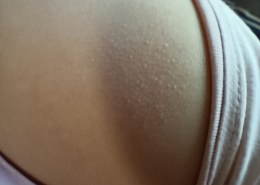Sorry i think its v embarassing to ask this. I am male, 35yo, n I fluctuate between 98-115kg depending on the time of the year. I am 175cm tall. yes I know I am fat. I have been trying over the ...
I hear you - it can be frustrating dealing with persistent acne, especially when it doesn’t seem to improve with time. Yes, isotretinoin (Accutane) is an effective treatment option for moderate to severe acne that hasn’t responded well to other treatments. It works by shrinking the oil glands in youRead more
I hear you – it can be frustrating dealing with persistent acne, especially when it doesn’t seem to improve with time. Yes, isotretinoin (Accutane) is an effective treatment option for moderate to severe acne that hasn’t responded well to other treatments. It works by shrinking the oil glands in your skin, which helps reduce oil production, clogged pores, and inflammation. Many people see significant, long-lasting improvement after taking the medication.
Dermatologists like myself typically recommend it when conventional acne treatments are not effective. It is also useful for nodulocystic acne. Nowadays it is given in a low dose regime to reduce side-effects without compromising efficacy
This medication can have potential side effects:
- Mucosal areas like the lips and eyes as well as the skin can become very dry when on isotretinoin and so you need to use moisturisers and lip balm
- Isotretinoin can cause increased sun sensitivity and you need to use a sunscreen when outdoors
- The medication can cause serious birth defects, so female patients must use strict contraception while on it.
Regular blood tests may be needed especially if you are on high doses.
Since your acne has persisted for years without improvement, it’s a good idea to consult a dermatologist. A dermatologist is a skin expert in acne who can assess your acne severity, identify any trigger factors and discuss the treatment options with you. If you need isotretinion, your dermatologist can guide you through the treatment plan and possible side-effects.
In the meantime, you can also manage your acne by using skincare products for acne-prone skin, reducing foods in your diet that you notice may cause acne flare-ups, and managing stress (which can also cause acne flares).
Wishing you all the best in your skincare journey!
Consultant Dermatologist
Joyce Lim Skin & Laser Clinic
The information provided on this forum is for educational purposes only and not intended as medical advice. Please consult a healthcare provider for any medical concerns, diagnosis or treatment.
See less

Hi Lucian, thank you for your open sharing about your struggles with weight loss. I can certainly empathise with the challenges you've faced, as many of my patients have experienced similarly. As a gastroenterologist, I have experience with various weight loss interventions, including the use of gasRead more
Hi Lucian, thank you for your open sharing about your struggles with weight loss. I can certainly empathise with the challenges you’ve faced, as many of my patients have experienced similarly.
As a gastroenterologist, I have experience with various weight loss interventions, including the use of gastric balloons like you asked. The gastric balloon is a deflated silicone balloon that is inserted into the stomach by swallowing grape size ball and then inflated inside the stomach. This takes up space in the stomach, which can help reduce appetite and promote feelings of fullness. In my practice, this balloon does not require surgery or endoscopy for insertion. After 4 months, the balloon will self-deflate and passes out naturally through the body.
The gastric balloon can be an effective option for many patients who have had difficulties achieving their weight loss goals through lifestyle changes alone. Patients who undergo the gastric balloon procedure lose on average 10-15% of their total body weight over the 16 week period the balloon is in place. If needed, after thorough assessment by doctors, this balloon can be combined with other weight loss therapy such as medication for enhanced weight loss outcomes.
The best weight management approach is highly personalised and depends on a variety of factors like your individual goals, overall health, lifestyle, personal preferences, and risk factors for obesity. There are a range of effective treatments available, and many people find success using a combination of different interventions over time.
I would encourage you to have an open discussion with your doctors to review your full health history, understand your specific needs and objectives, and then recommend the right combination of interventions to help you achieve safe, sustainable weight loss. Feel free to reach out to me if you would like to learn more.
Dr John Hsiang
Gastroenterologist and Hepatologist
https://richmondgastro.com.sg/
FB – Richmond Gastroenterology Centre
https://www.facebook.com/profile.php?id=61552438412862&mibextid=ZbWKwL
https://www.tiktok.com/@gastrodoc_sg
The information provided on this forum is for educational purposes only and not intended as medical advice. Please consult a healthcare provider for any medical concerns, diagnosis or treatment.
See less